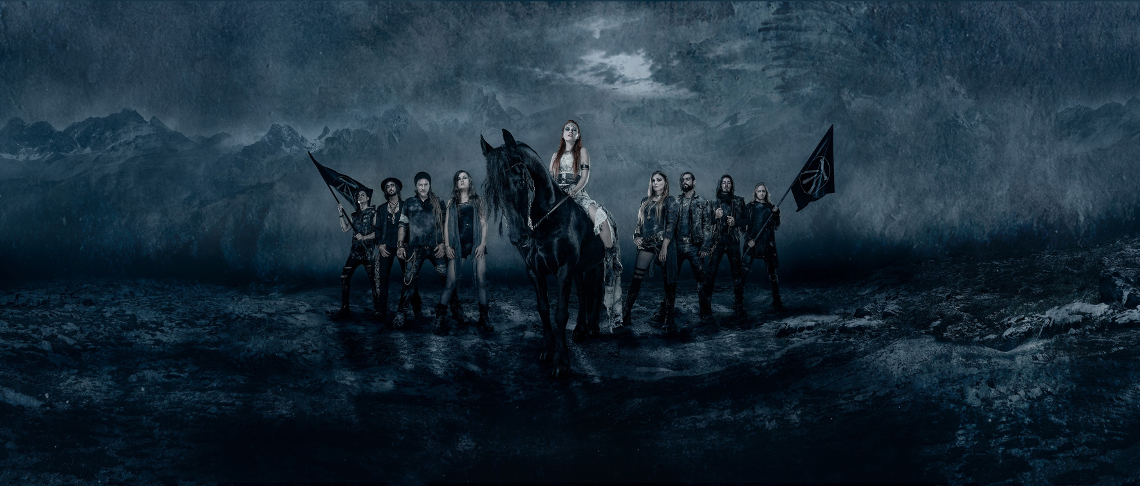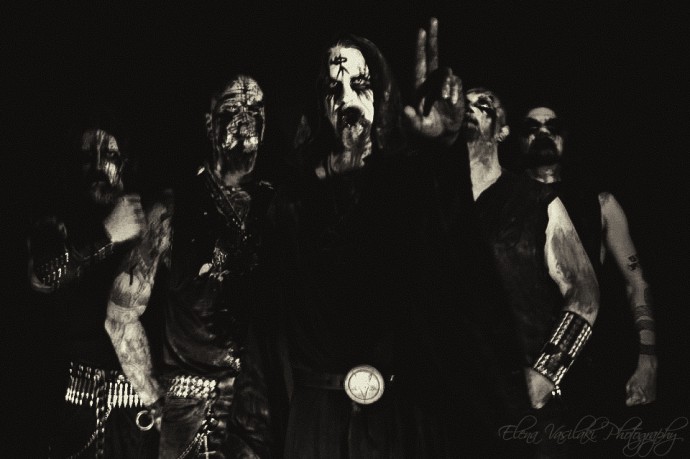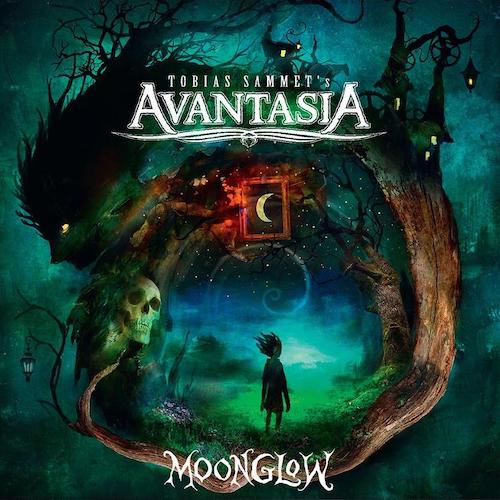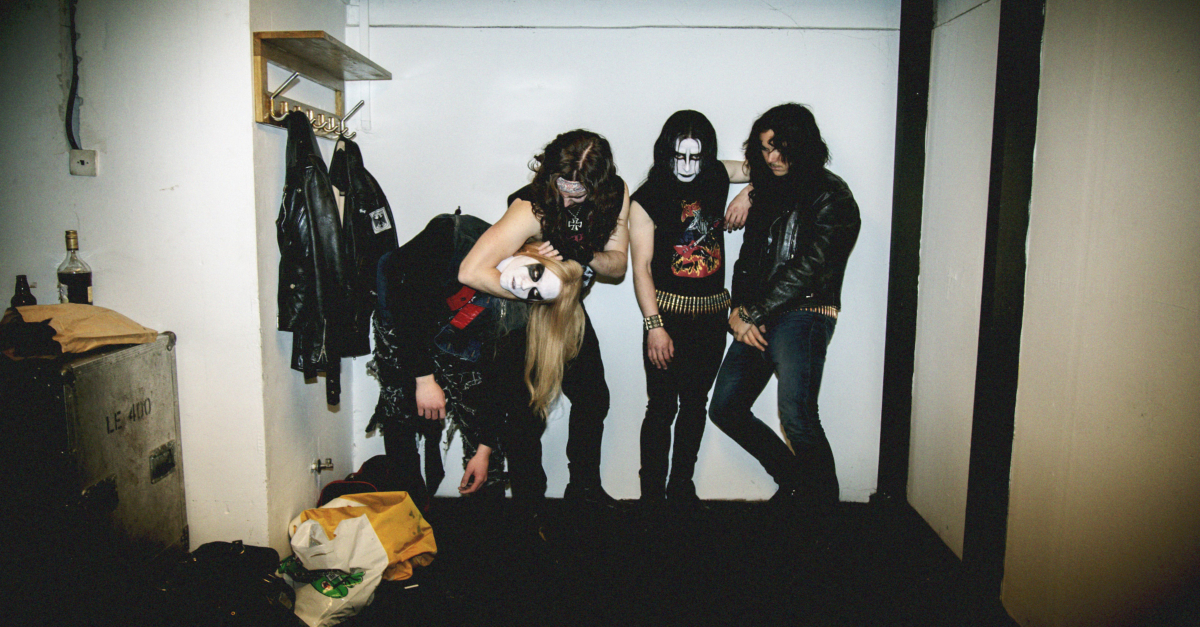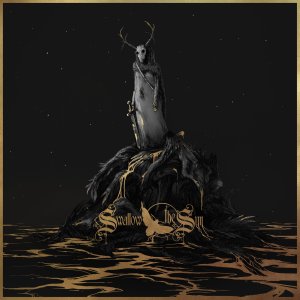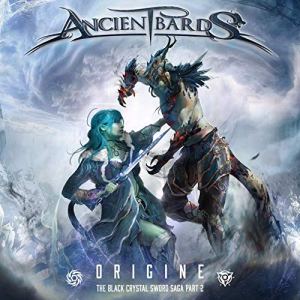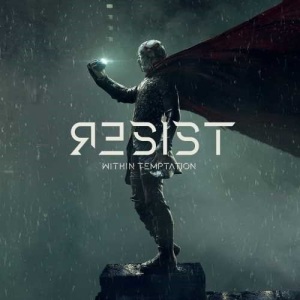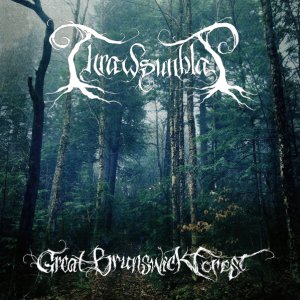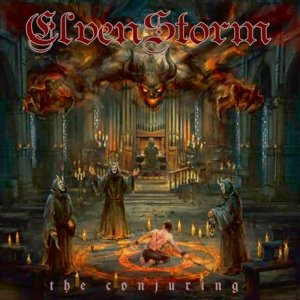
Alright back to music! Thanks for indulging the little detour I had to go on with the last update, and though I’m hoping it will be the first and last of its kind, you kinda get the feeling that it won’t be unfortunately. The good news is that the metal release calendar marches on, and its been a busy few weeks trying to juggle listening time for everything that’s caught my ear. The big release I’m reviewing below is obviously the new Devin Townsend album Empath, and we went pretty in-depth on the upcoming newest MSRcast episode that should be up very soon, in addition to discussing recent concerts I’ve been to. Speaking of, I found out I’m driving to Dallas in August to see Demons & Wizards, and let me tell you, as a Houstonian, driving to Dallas is something I’d only do for a select few artists. Hansi should be honored! Oh and Game of Thrones’ final season premieres tomorrow so even though its officially spring, I’m happy to say Winter Is Coming!
Battle Beast – No More Hollywood Endings:
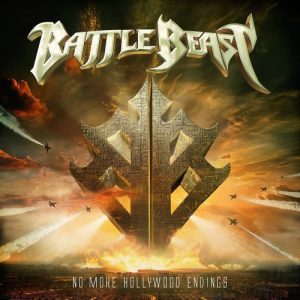
After becoming very familiar with Finland’s glam meets power metal export Battle Beast with 2017’s Bringer of Pain, I felt an almost zen-like state of awareness in approaching their new album. I’ve achieved this mental clarity in part through observing and participating in critical discussions about them with the r/PowerMetal community and generally feeling less confused about the band’s own schizophrenic tendencies that had left me puzzled in the past. I think what really helped however was seeing them live for the first time on the Kamelot tour in 2018, where simply watching their performance provided some insight into how this band sees itself and their music post Anton Kabanen (now Mr. Beast In Black in case you didn’t remember). My takeaway was equal parts Roxette / Dokken / and Twisted Sister, which is inherently fine, but it was good to get clarity (creating emotional epics ala Tuomas Holopainen isn’t their bag). Now I’m not sure how much thought the band put into titling the album No More Hollywood Endings, but its striking that both the cover art and arms wide, grandiose, arena ready anthems on this album directly contradict it in sound and spirit. The move towards this centering of their sound was suggested on their last record, and consolidates here on moving away from the Judas Priest-ian influences of their early records and more towards the Roxette meets Sabaton vibes that they’ve realized vocalist Noora Louhimo does better than most. She’s a phenomenal singer in terms of pure tone, grit, and delivery; the kind of voice that is able to coat a veneer of believability over the most lackluster lyric.
These songs place Louhimo front and center not only in the mix, but in the center of the overall songwriting approach, a wise decision that allows keyboardist Janne Björkroth, guitarists Juuso Soinio and relative new guy Joona Björkroth (who’s also the founding guitarist for Brymir, whom I review below) to lean hard towards pomp-tinged Avantasian power metal as on the opening rush of “Unbroken” and “Eden”, but also veer off towards the sultry modern pop meets glitter rock mash up in “Unfairy Tales”. The latter pulses and struts on the back of a fat, ultra-processed riff in the mold of Bon Jovi’s “Its My Life”, blossoming into skyward chorus that would’ve yielded a straight up hit in the 80s. And that’s not just Louhimo’s uncanny similarity to Ann Wilson as a vocalist suggesting that, but the actual construction of that stepladder nature of the bridge, and runway sized room available for the vocal hook in the refrain. This largely retro feel continues on the shoulder-padded, too many bracelets on two wrists Bonnie Tyler vibe of “Endless Summer”, and while I’m all too happy to eat this melodic jello with a plastic spoon, your tolerance may or may not be up for it. But its not all nostalgia soaked throwbackery, as the band gets a little inventive on the title track, concocting a strange waltz with ABBA-inspired guitar melodies and dance-pop keyboard motifs, reminiscent of something you’d hear Amberian Dawn dabble in with their unabashed love for the glorious Swedes. I particularly enjoy the drama of Louhimo’s vocal melody here, veering wildly from romantic anguish to Broadway stylized theatrics, and utterly ridiculous video aside, I thought it was a rare experiment from this band that actually worked. They have a track record of trying ambitious stuff like this and falling on their face, so this is progress —- in fact the whole record is surprisingly solid and at times even worthy of a roadtrip playlist inclusion or two.
Brymir – Wings of Fire:

Hailing from Finland, Brymir is one of those bands that I forgot I heard before for a reason I can’t hope to remember. Maybe its because their name was too close to Houston’s own Brimwylf or maybe its because I remember their debut coming out on Spinefarm in 2011 with a lot of hype behind them proclaiming them to be the next Wintersun. I barely remember anything from their debut, so that clearly wasn’t the case, and I must’ve just slept on their 2016 sophomore effort, but I’m glad to see they’ve sliced the gap of time between releases even further with Wings of Fire, their third album. More than that though, I’m beyond glad that this is a seriously thrilling affair, a thoroughly convincing slice of epic melodic death metal strutting around the castle with its symphonic metal overcoat. I’ve been listening to this consistently for the past couple weeks, and it took me a minute for it to dawn on me that I was finding myself missing it when I skipped it for a few days earlier this past week. I can’t speak for the past, but right now is all that matters, and on Wings of Fire, Brymir come across to me as the heavier end of Wintersun spiced with a little Children of Bodom and Suidakra for thrashy spice and smoky pagan flavor respectively. I think this particular vein of melodic meets extreme metal is particularly difficult to pull off this well, because there’s always the trap that you’ll lapse into pretentiousness if you’re not self-aware during the songwriting process. Brymir seem to have that awareness in spades however, and I love that their choice for the cover art is vividly anime influenced, suggesting they have a good feel for the visual spark their music might be conjuring in some of our minds’ eyes.
About that music then, there’s so much worth pointing out here, but overriding everything is that I find the band’s sense of wildly adventurous pomp lovable and refreshingly devoid of pretentious that can so easily cloud a merging of this specific kind of musical approach. You get a sense of that right from the opening gates of “Gloria in Regum”, a perfectly blended mix of orchestral surge and clamor, pummeling rhythm section and a ripping solo at the 2:52 mark. Or in the stuttering effect laid on top of the vocals in “Hails From the Edge” at the 2:25 mark that sounds like its something pulled from the BT playbook. Speaking of vocals, Brymir screamer Viktor Gullichsen has an approach that could arguably be described as a blackened version of what Jari Maenpaa or Mors Principium Est’s Ville Viljanen does, which is really the right way to go for Brymir’s melodic approach (grunting death metal vocals would just distract). The well chosen single, “Ride On, Spirit”, is one of the album’s highlights, a mix of a quiet folk intro and blasting symphonic backed riffing that erupts like a volcano. I also enjoyed Noora Louhima’s guest vocals on “Anew”, despite that songs borderline questionable spoken narration that uncomfortably sounds like Timo Tolkki speaking from on high. My personal favorite however is “Chasing the Skyline”, not only for its melancholy, distant sounding opening, but for that absolute stunner of a chorus that is just on the right side of ridiculous (noticeable Stratovarius / early Nightwish vibes popping up here, love it). A spectacularly fun album that I can’t stop listening to.
Devin Townsend – Empath:

I suspect that Empath will the point of entry for a lot of new fans to the wide and frankly weird world of Devin Townsend. In the months and weeks leading up to its release, I had noted an inordinate amount of buzz surrounding this album, much of which involved its striking cast of guest artists, but also on its rather risky, expensive price tag it cost to make it. Maybe I hadn’t paid attention before with his previous albums, but I’m usually a fairly astute observer of these things, and nevermind that my MSRcast co-host Cary the Metal Geek might be the biggest fan of Devin’s in all of Texas —- so I’ve heard about Devin’s releases before, but not with this level of volume. Going back to the album’s price tag for a minute because that is an eyebrow raising amount ($170,000 of his own money, not counting the amount the label put in for promotion) for an independent metal album in 2019, I wonder if that’s not fueling some of the extra interest that I’ve detected surrounding its release. I suspect that metal fans in particular love the idea of a band or album that is rife with ambition, and the media buzz around this album is drawing in a few more ears, with the knowledge that Devin has been vocal about needing this album to succeed in order to continue financially (enough to provoke even the most passive person to click on a link to a YouTube video to find out for themselves if he might just be able to). In 2004 when the music industry wasn’t in as quite a transformative state as it is today, Therion spent 100,000 Euros on recording two albums in Lemuria and Sirius B. While that wasn’t even a minor headline back then, and it was money Nuclear Blast provided for a recording budget, it still had to be recouped, so the band avoided music videos, toured for years and managed to pull it off. With Empath, Devin is already in the hole to the record company as well as himself, spending all of the 150k he managed to net from re-signing his back catalog. Yikes. The early good news however is that the album is landing some of his highest positions to date, particularly in the third largest music market of Germany where he’s nearly cracked the top ten.
As for myself, I think all of the above drove my interest in giving Empath particular attention that I’d never given to any prior Devin release, even setting aside knowing that it’d be a big topic on an episode of MSRcast. This album has been a challenge to wrap my mind around admittedly, my first impressions just being somewhere in the ballpark of “this is a lot”. And it still is to be truthful, I still have trouble processing all of the 23:33 running time of the epic “Singularity”, even though its opening five minute “Adrift” passage is so gorgeous I’ve come back to it over and over. The rest of it is a challenging listen, but there are little spots here and there where my interest is piqued, things I wish he’d repeat a few more times or develop into something larger (the Anneke van Giersbergen vocal passage in the “Here Comes The Sun!” suite is one of them). I realize that track was a large chunk of the album’s 74 minute running time, so that might be something of a black mark on the album so many listens into it, but its one that I feel okay about letting go. I enjoyed most of Nightwish’s Endless Forms Most Beautiful while simultaneously decrying the disjointed nature of its 24 minute closer “The Greatest Show On Earth”. Conversely, I found enjoyment in Empath’s far more concise yet utterly weird tracks, such as “Sprite”, with its almost trance influenced approach towards electronically manipulated repeating vocal lines, strange jumble of rhythmic sounds and jarring musical elements that barrel their way forward without warning. I’ve been re-discovering my love of 90s and early 2000s electronic music lately, particularly trance and progressive house and I have a feeling that listening to all that stuff lately has groomed my headspace to easily accept something
unorthodox along these lines.
I’m of course relatively unaware of the musical directions Devin’s explored throughout his back catalog, but I was impressed enough by the bold, whimsical theatricality of “Why?”, a song that might be my favorite on the record. It actually reminded me of something off the aforementioned Therion and their Beloved Antichrist opera from last year, a tune that seems more classical aria than pop ballad as we know it. His vocals here are rich and emotive despite their purposeful over the top nature, particularly at the 3:10 mark during the heightened swell of the songs climax —- he could be a guest tenor on a Sarah Brightman record during that sequence. On the complete opposite end, “Hear Me” was a compelling uber-aggressive moment ala Strapping Young Lad, and it was interesting to hear how Chad Kroeger’s guest vocals fit into the chaos (it sounded good, but its a little hard to discern his voice from Devin’s). The percussion here courtesy of Samus Paulicelli is dizzying by the way, and its worth checking out this clip of him recreating his recording. Then there’s the love it or hate it proposition of “Spirits Will Collide” with its heart on sleeve lyrics that are admirable in their anti-suicide plea, sort of a spiritual cousin to R.E.M.’s “Everybody Hurts”. I’ve seen a decent amount of polarizing reactions to this one, and while I’m one of the few who don’t go towards either end, I think its a well constructed song in terms of its pop hook actually affecting sparking a listener’s pathos if they’re personally inclined to allow it. As some of you know, I listen to Sarah Brightman records, so this is the kind of syrup I’ll gladly pour over my pancakes, except that I think the song is diminished a bit with the harsher vocals. I’d love to see an alternate version surface, something more in the vein of this cover. It feels like it could’ve been a home run power ballad but maybe there was some thought that it might’ve been a little too much. I appreciate Devin’s admitting that Enya was an influence on the choral verse melodies, because I heard the structure of “Only Time” straight away on first listen. One of the most buzzed about albums this year is definitely worth all the noise, and for his sheer creativity alone, I hope he makes his money back.
Thormesis – The Sixth:
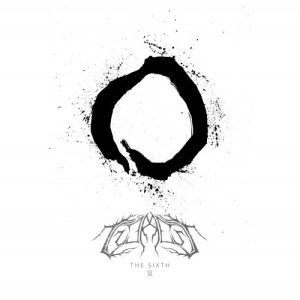
This was something brought to my attention via Justin of the Mindfudge Podcast when he guested on a recent MSRcast episode, and I’ve been binging this album ever since. Thormesis are a German band that have delivered five apparently unremarkable albums of epic pagan black metal ala Moonsorrow sung in their native language, thus going fairly unnoticed by most of the metal world. Now full disclosure, I haven’t had a chance to check out their back catalog, but I’m trusting the opinion of someone who has, so take my appraisal of their back catalog with a grain of salt. What matters is explaining why they’ve really hit upon something remarkable with The Sixth, and that’s at once a simple and complicated proposition. There so many elements at play here, furious tremolo riffing over frenetic blastbeat passages, hard rock influenced splashes of lead guitar overlays, an Ensiferum-esque way with pagan metal styled choral vocals, and a noticeable post-rock production wash (dare I say black-gaze-ish?) that permeates the pores of these songs. What brings all these together in as compelling a manner as they are is the satisfyingly earwormy sense of melody that’s ingrained in the songwriting. Yes this is an album full of discordant chord progressions and abrupt tempo shifts, the sort of thing that makes black metal the extreme noise chamber it can often be, but on The Sixth, Thormesis grab hold of those seemingly uncontrollable elements and tame them with some of the strongest melodies I’ve heard on an extreme metal album in recent memory.
We hear this on the very first measures of the album opener “Sonnen”, with its tail-riff segmenting approach to the verse passages (check the :25 second and 1:17 marks). Its something from the hard rock playbook that not only gives a clear, discernible structure to an otherwise chaotic rhythmic attack, but serves as the song’s motif, an approach I often wish more black metal bands would employ. But there’s so much more here to unpack, the gorgeous, melancholy keyboard fragments that gently glide over everything three minutes in, and the lead vocal duet between guitarists Tino Krüger and Benjamin Rupp, who apparently share vocal duties throughout the album. The worryingly titled “Their Morbid Drunken Ways” initially conjured up images of some kind of Finntroll level disaster, but thankfully its more along the lines of Sentenced in its melancholic, aching melody that’s loosely draped across a mid-tempo, Katatonia-esque quiet and thunder juxtaposing. I hear that same Sentenced / Insomnium melodic tone in the opening phrasings in “Chor der Toten”, which might be my favorite song on the album. And its not only because of that awesome rock guitar bend at 2:11 that steers us away from one of the album’s most fierce passages to a beautiful, satisfying guitar solo; its the dramatic, isolated tremolo fragment stirring in the ether that builds up to that visceral explosion at the 4:07 mark, like a roller coaster careening down from top of the highest hill. These are songs largely built around musical hooks, not conventional pop formatted vocal hooks, but there are times when the band get daring enough to employ unconventional vocal motifs such as on “One Tear For Every Last Burning Soul”, where clean vocals erupt in something like funeral wailing. It sounds weird but trust me it works, particularly when its fit in between crystalline synths and soaring, emotional guitarwork. If you’ve been looking for something to blow you away in the first half of this year, you need to check this out regardless of your tolerance for black metal because The Sixth is a transcendent release.
Eluveitie – Ategnatos:

I have to admit, even with the hindsight of enjoying Eluveitie’s first post major lineup schism release in the largely acoustic Evocation II: Pantheon, that I didn’t expect this band to emerge stronger after the loss of vocalist / multi-instrumentalist Anna Murphy, guitarist Ivo Henzi, and drummer Merlin Sutter. They might have nailed that acoustic album out of the park, even bettering the first volume, but the real test would come when the band returned to its melodeath meets folk metal core sound. I’m not gonna keep you in suspense, they really have pulled it off, convincingly I might add. And I’m beginning to wonder if the key to this successful transition was simply stumbling upon the right vocalist in Fabienne Erni as Murphy’s replacement. I raved about Erni’s vocals on Evocation II, her vibrant, lightened vocal tone a perfect match for that album’s material in giving it a breezy, brighter feel than I suspect Murphy would have been able to. It turns out her voice pairs equally as well next to pummeling rhythm sections and Gothenburg patterned riffing as on “Deathwalker”, an early in the tracklisting highlight and my current favorite on the record. Chrigel Glanzmann is still obsidian throated in his melodeath delivery here, but his side by side vocal duet with Erni on the chorus over intense riffing works surprisingly well, her voice powerful enough to hold her own against his and still sound strikingly opposite in tone and texture. Its a compelling song, and a fairly perfect portrait of everything that makes Eluveitie so distinct and unique even amongst other folk metal artists.
There’s another standout cut in “The Raven Hill”, where Erni’s hypnotic lead vocal entrance sets a mystical mood that amplifies the already elevated strong folk tendencies coming through here. Hurdy-gurdy from Michalina Malisz, fiddle courtesy of Nicole Ansperger, and Matteo Sisti on bagpipes work up a gorgeous, rustic folk melody that’s echoed by Glanzmann’s trademark whistles. Even here his harsh vocals are met stride for stride with Erni’s excellent vocals, and I particularly like the ending echoing the intro, with her guiding the way out of this smoky wood we’ve all obviously been hanging out in. There’s a few cuts on here that are pretty much full on melodeath with Glanzmann at the helm, and as on previous Eluveitie albums I’m generally fine with them, although they’ve never been the best cuts on the records and that’s the same situation here. I’m a fan of this band for the folk metal elements, and they tend to come around more when Erni’s at the very least taking a 50/50 role at the vocal helm as on the darker, aggressive “Threefold Death” and the pop soaked “Breathe”. In that respect, “Rebirth” is another album highlight for cleverly managing those elements so well, and for Erni’s handling of her vocal melody. It was also a risky but nice touch to add in a few little instrumental vignettes like “The Silvern Glow”, things I usually tend to frown upon but Eluveitie wisely kept these very much tied to the acoustic spirit of the music in Evocation II, kinda linking these two albums together based on its identical line-up. This is a sixteen track long album but if you subtract those few cuts its still a more than respectable thirteen song proper album, with a meaty running time. Its been awesome to see this band make its full comeback from a rough patch in its lineup history, and they’ve made an album that lives up to the best of their catalog.
Cellar Darling – The Spell:

Its uncanny that once again a new Eluveitie and Cellar Darling album are not only appearing back to back in one of my review clusters, but that yet again its not because I’m trying to be deliberately provocative by doing so —- in fact, these two albums were released within two weeks of each other. Its a close mirroring of what happened in 2017 with Eluveitie’s Evocation II: Pantheon and Cellar Darling’s debut This Is The Sound. Being that I’m a reviewer that is always going to get to albums late, after I’ve listened to them enough times to feel comfortable writing about them, a side by side comparison is too intriguing to pass up. However, a note of advice to both bands, particularly Cellar Darling, you both are on Nuclear Blast Records, surely it can’t be that hard to coordinate with the label to steer clear of each other and give yourselves some breathing room around your release dates. Its not that I think discerning fans can’t separate the two albums and make their own value judgments, but the proximity can only provoke a direct comparison to their ears too, and so many of those fans were upset when Anna Murphy / Merlin Sutter / Ivo Henzi and Eluveitie split, and considering the reason for the split was each side not liking the other’s ideas about musical direction —- well, don’t be surprised if some of those fans feel the burden of that conflict on themselves in hearing both of these records. I wasn’t all that bothered by the split myself, intrigued certainly, and I felt sympathy for Murphy and company, enough to hope that Cellar Darling would be something I’d really enjoy. Their debut was a shaky start, but I think most of us were willing to forgive that and hope for more interesting material the second go round, but on The Spell the band finds themselves with no new ideas, a worrying sign. You can see where this is headed, and its a bummer to say that The Spell isn’t an improvement on its predecessor.
I wish I could offer up a highlight here, but truthfully I’ve struggled to find one for these past few weeks, and I’ve internally groaned every time I’ve had to make another pass through the album to see if anything else clicked. The most emergent song from these hesitant listening sessions has been “Insomnia”, which marries a metallic degree of heavy riffing to isolated hurdy gurdy melodies to set up a soaring chorus where Murphy reminds us just how well she can get her rather earthy voice sailing through the air. I’d like the song more if it retained a sense of kinetic flow throughout, instead of the ambient passages within where nothing interesting is really happening. When you have a genuinely affecting hook, plug it in as often as you can without coming across like Haddaway. I also liked the dirty, ground in feel of “Freeze”, where Murphy’s vocals merge with a distant rhythmic grumble to come across like a close cousin to The Cranberries “Zombie” (before that awful radio rock band decided to ruin that song for everyone). A similar problem crops up on “Love”, which has a pretty solid hook that gets plugged a little more, but the connective tissue is missing in terms of crafting a compelling song from start to finish. But its a song like “Drown” that I have a really hard time with, its aimless riffing and lack of any kind of binding melody (even in the vocals) just result in a soupy mess of ideas that go nowhere. On the title track, Murphy juxtaposes elements of a pop chorus with a high pitched delivery of a specific line in a manner that is certainly memorable, but not exactly enjoyable. There’s a similar problem with “Hang”, where Murphy explores the full sweep of her vocal range, and she sounds great to her credit, but the song lacks a compelling motif to tie everything together (but given its lyrical narrative, perhaps that was intentional?). I’ve toned down what was initially a scathing review because I began to consider that a lot of Murphy’s fans will love this kind of stuff and might find it perfect for them. But for myself, it really puts the entire Eluveitie split into perspective and has me siding with them —- if this more bland, generic rock riff direction was what the Cellar Darling crew had in mind for the direction in their previous band, then I don’t blame the Eluveitie camp for balking. They’ve doubled down on what the essence of that band’s sound to deliver two really excellent folk-metal albums, and Cellar Darling are doing… whatever this is.

